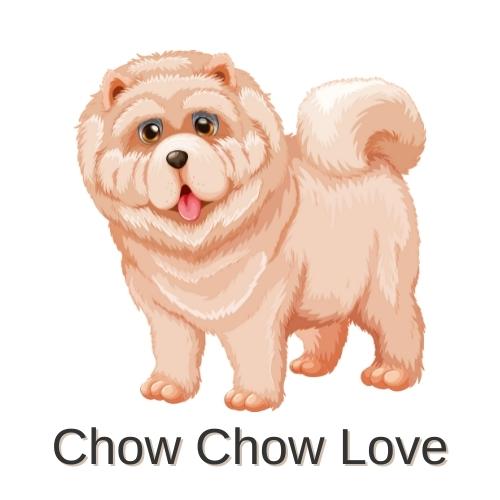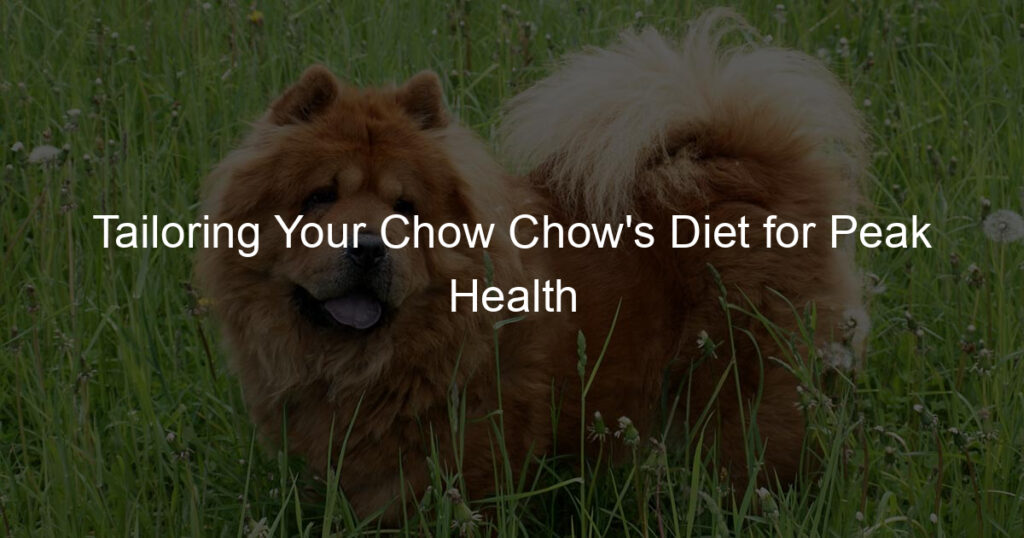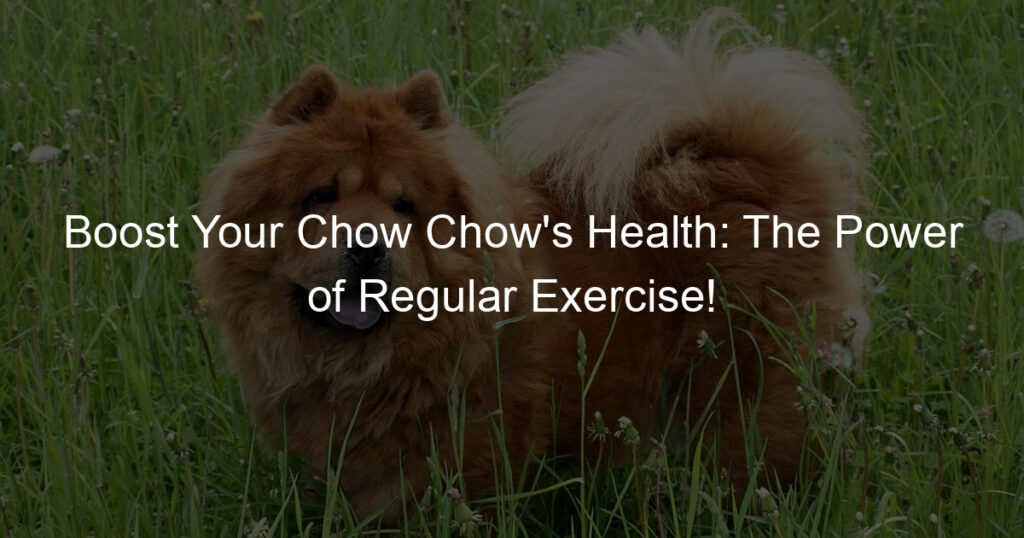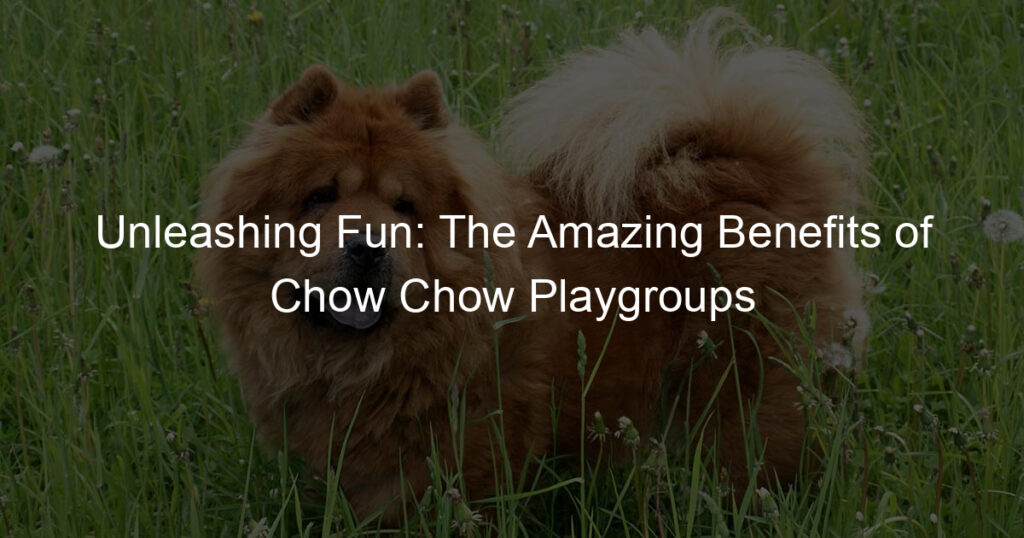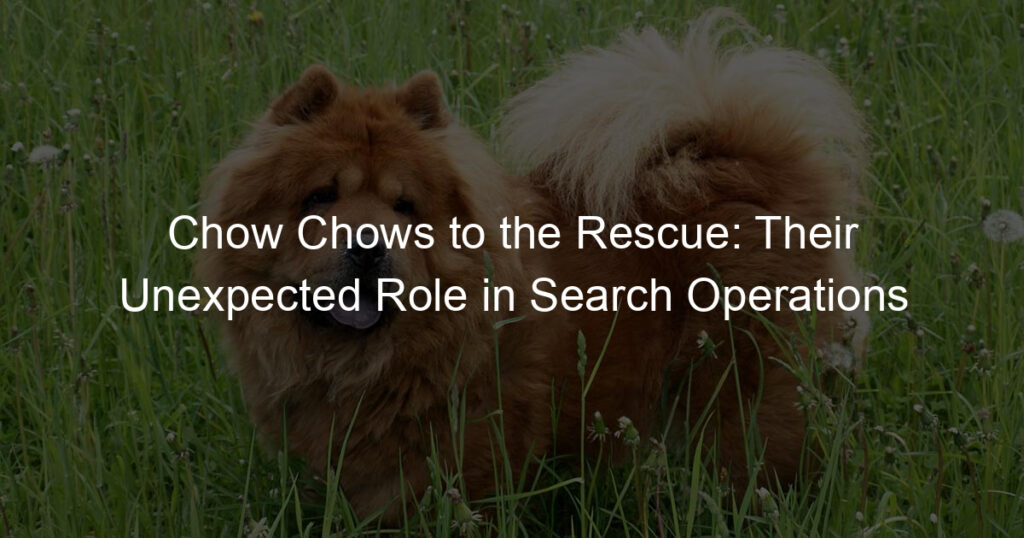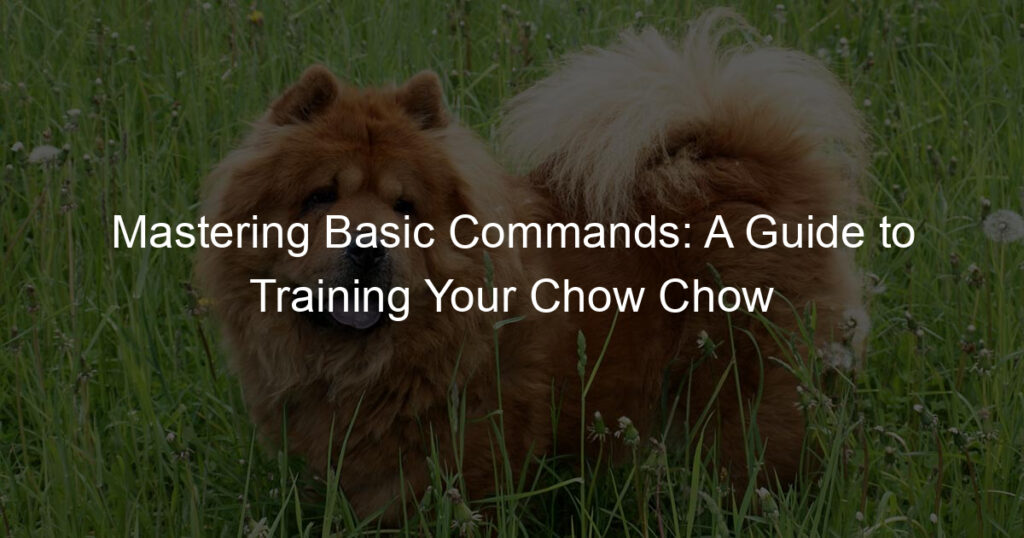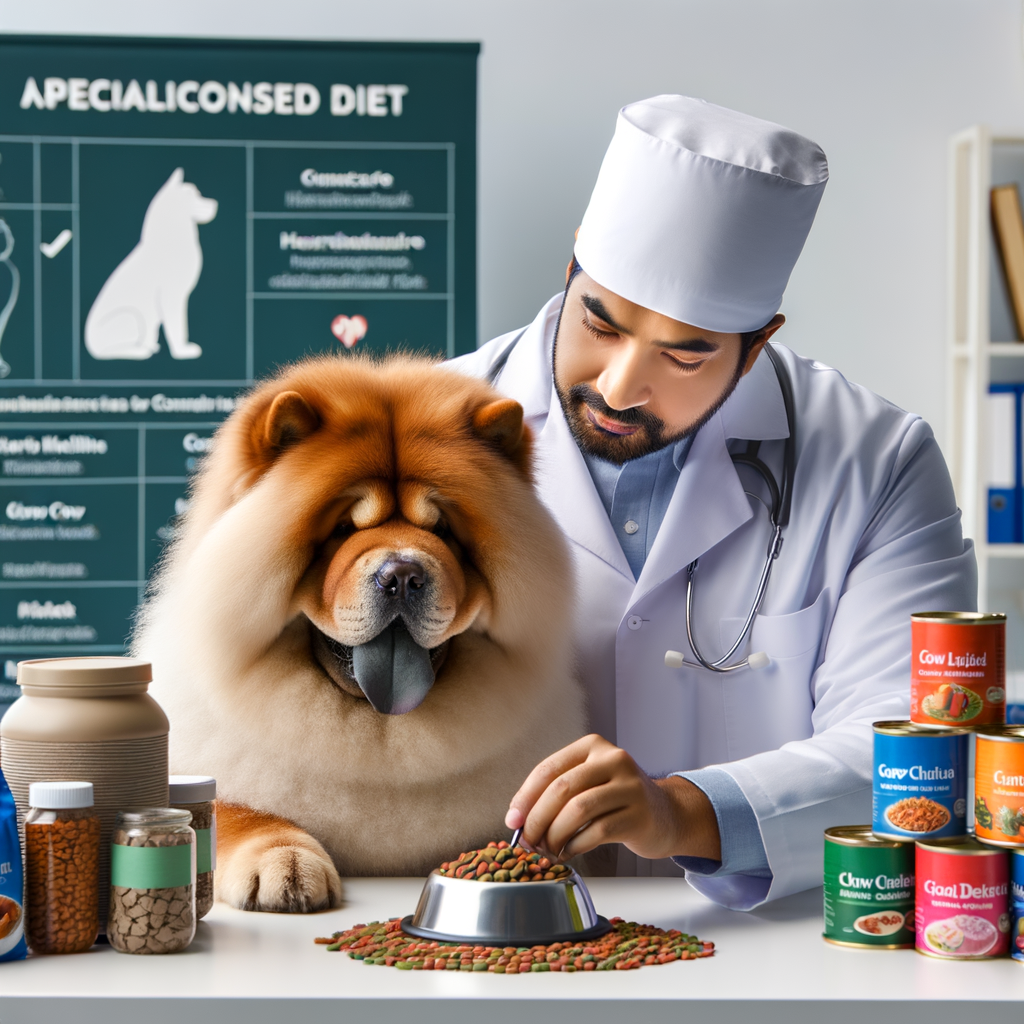
Introduction to Chow Chow Diet
When it comes to our beloved pets, their health and happiness are paramount. One of the key factors that contribute to their well-being is their diet. This is especially true for Chow Chows, a breed known for its distinctive lion-like appearance and blue-black tongue. In this article, we will delve into the importance of a healthy diet for Chow Chows and provide an overview of their nutritional needs.
A Chow Chow’s diet plays a crucial role in its overall health and longevity. Just like humans, dogs need a balanced diet to stay healthy. A well-balanced diet can help prevent various health issues such as obesity, diabetes, heart disease, and other conditions. It can also contribute to a shiny coat, healthy skin, and high energy levels. Therefore, understanding and providing a nutritious diet for your Chow Chow is of utmost importance.
Chow Chows, like all dogs, require a balanced diet that includes proteins, carbohydrates, fats, vitamins, and minerals. However, each Chow Chow may have different nutritional needs based on factors such as age, weight, health status, and activity level.
Proteins are essential for growth and maintenance of body tissues. Carbohydrates provide energy, while fats are necessary for skin and coat health. Vitamins and minerals play a vital role in various body functions.
It’s important to note that Chow Chows are prone to certain health issues like hip dysplasia and eye problems. Therefore, their diet should also cater to these specific needs. For instance, a diet rich in Omega-3 fatty acids can help maintain healthy joints and eyes.
In the following sections, we will delve deeper into the role of diet in maintaining optimal health for Chow Chows, how to customize your Chow Chow’s diet, and how to maintain a healthy diet for your Chow Chow. We will also debunk some common myths and misconceptions about Chow Chow nutrition, share some case studies, and provide health tips beyond diet. So, stay tuned!
Optimal Health for Chow Chow: The Role of Diet
When it comes to maintaining the health of your Chow Chow, diet plays a significant role. Just like humans, dogs need a balanced diet to stay healthy and active. A well-balanced diet for your Chow Chow can help prevent many health issues and ensure a long, happy life for your furry friend.
- How diet affects Chow Chow’s health
The diet of a Chow Chow directly impacts its health and well-being. A diet that lacks essential nutrients can lead to various health problems like obesity, heart disease, and skin issues. On the other hand, a well-balanced diet can boost their immune system, maintain a healthy weight, and promote a shiny, healthy coat.
For instance, Chow Chows need a good amount of protein in their diet for muscle development and energy. Carbohydrates provide them with the energy they need for their daily activities. Fats are essential for skin and coat health, and vitamins and minerals are necessary for various bodily functions.
- Key nutrients for optimal health
Let’s delve into the key nutrients that your Chow Chow needs for optimal health:
| Nutrient | Role |
|---|---|
| Protein | Essential for muscle development and energy |
| Carbohydrates | Provides energy for daily activities |
| Fats | Promotes skin and coat health |
| Vitamins and Minerals | Necessary for various bodily functions |
Remember, every Chow Chow is unique and may have different dietary needs. It’s always best to consult with your vet to create a diet plan that suits your Chow Chow’s specific needs and lifestyle.
Customizing Your Chow Chow’s Diet
Every Chow Chow is unique, and so are their dietary needs. To ensure your furry friend stays healthy and happy, it’s crucial to understand and customize their diet accordingly.
Understanding Your Chow Chow’s Dietary Needs
Before you can customize your Chow Chow’s diet, you need to understand their dietary needs. This involves two key steps:
-
- Assessing your Chow Chow’s health status
Your Chow Chow’s health status plays a significant role in determining their dietary needs. For instance, a Chow Chow with a high activity level may require more calories than a less active one. Similarly, a Chow Chow with a health condition like diabetes or obesity may need a specialized diet. To assess your Chow Chow’s health status, monitor their weight, activity level, and overall behavior. Also, look out for signs of potential health problems, such as changes in appetite, excessive thirst, or sudden weight loss or gain.
-
- Consulting with a veterinarian
After assessing your Chow Chow’s health status, it’s essential to consult with a veterinarian. They can provide a professional evaluation of your Chow Chow’s health and recommend a suitable diet. Remember, a diet that works for one Chow Chow may not necessarily work for another. Therefore, it’s crucial to get a personalized diet plan from a veterinarian who understands your Chow Chow’s unique needs.
Understanding your Chow Chow’s dietary needs is the first step towards customizing their diet. Once you’ve gained this understanding, you can proceed to choose the right food, adjust portion sizes, and introduce new foods gradually. Remember, a well-customized diet can significantly contribute to your Chow Chow’s health and wellbeing.
Chow Chow Food Customization: Practical Tips
Customizing your Chow Chow’s diet can be a rewarding experience that contributes to their overall health and happiness. Here are some practical tips to guide you through this process:
-
- Choosing the right food
Choosing the right food for your Chow Chow is crucial. It’s not just about picking any dog food off the shelf. You need to consider your dog’s age, weight, and health status. Puppies, adults, and senior dogs have different nutritional needs. For example, puppies need food rich in protein and fat to support their growth, while senior dogs may need food with less fat and more fiber. Always look for high-quality food that lists a source of animal protein as the first ingredient.
-
- Adjusting portion sizes
Portion control is another important aspect of customizing your Chow Chow’s diet. Overfeeding can lead to obesity, which can cause numerous health problems. On the other hand, underfeeding can lead to malnutrition. The right portion size depends on your dog’s age, weight, and activity level. As a rule of thumb, an adult Chow Chow needs about 1 cup of dry food for every 15 pounds of body weight per day. However, this can vary, so it’s best to consult with your vet.
-
- Introducing new foods gradually
When introducing new foods to your Chow Chow’s diet, it’s best to do it gradually to avoid upsetting their stomach. Start by mixing a small amount of the new food with their current food. Gradually increase the amount of new food while decreasing the amount of old food over a period of about a week. This will allow your dog’s digestive system to adjust to the new diet.
Remember, every Chow Chow is unique and what works for one may not work for another. Always monitor your dog’s reaction to any diet changes and consult with your vet if you have any concerns.
Maintaining a Healthy Diet for Your Chow Chow
Keeping your Chow Chow healthy and happy is a top priority for any pet owner. One of the most effective ways to ensure their well-being is by maintaining a balanced and nutritious diet. But, how can you monitor your pet’s health and know if their diet is truly benefiting them?
Monitoring Your Chow Chow’s Health
Monitoring your Chow Chow’s health is a crucial part of maintaining their diet. It involves regular vet check-ups and keen observation for any changes in their behavior or appearance. Let’s delve into these two aspects:
-
- Regular vet check-ups: Regular vet visits are essential for your Chow Chow’s health. Vets can provide a comprehensive health assessment and can detect any potential issues early. They can also provide guidance on diet adjustments based on your pet’s age, weight, and health condition. According to the American Veterinary Medical Association, adult dogs should have a check-up at least once a year, while puppies and senior dogs may require more frequent visits.
- Watching for changes in behavior or appearance: As a pet owner, you are in the best position to notice any changes in your Chow Chow’s behavior or appearance. Changes such as loss of appetite, lethargy, excessive thirst, or changes in coat condition can all be signs of health issues. If you notice any of these changes, it’s important to consult with your vet as soon as possible. Remember, changes in behavior or appearance could indicate a need for a diet adjustment.
Monitoring your Chow Chow’s health is not just about reacting to issues as they arise, but also about proactive care. By keeping a close eye on your pet’s health and maintaining regular vet check-ups, you can ensure that your Chow Chow’s diet is serving them well and contributing to their overall well-being.
Adjusting the Diet as Needed
Just like humans, Chow Chows may need changes in their diet from time to time. This could be due to various reasons such as age, health conditions, or changes in their activity levels. It’s important to know when and how to adjust your Chow Chow’s diet to ensure they remain healthy and happy.
-
- When to adjust your Chow Chow’s diet
There are several signs that your Chow Chow may need a diet adjustment. These include:
-
-
- Changes in weight: If your Chow Chow is gaining or losing weight without any changes in their activity level, it may be time to adjust their diet.
- Changes in behavior: If your Chow Chow seems lethargic or overly active, it could be a sign that their diet needs adjustment.
- Changes in coat: A dull or thinning coat can indicate nutritional deficiencies.
- Changes in stool: If your Chow Chow’s stool is consistently loose or hard, it could indicate that their diet isn’t right for them.
- How to make changes safely and effectively
-
When adjusting your Chow Chow’s diet, it’s important to do so gradually to avoid upsetting their stomach. Here are some steps to follow:
-
- Consult with a vet: Before making any changes to your Chow Chow’s diet, consult with a vet. They can provide guidance based on your dog’s specific needs.
- Make changes gradually: Start by mixing a small amount of the new food with the old food. Gradually increase the amount of new food while decreasing the old food over a period of 7-10 days.
- Monitor your Chow Chow: Keep an eye on your Chow Chow’s weight, behavior, and overall health during the transition. If you notice any negative changes, consult with your vet.
Remember, every Chow Chow is unique and what works for one may not work for another. It’s crucial to pay attention to your Chow Chow’s individual needs and adjust their diet accordingly.
Chow Chow Nutrition: Common Myths and Misconceptions
When it comes to Chow Chow nutrition, there are many myths and misconceptions that can lead to confusion. In this section, we will debunk these myths and provide you with the facts about Chow Chow diet.
-
- Debunking common myths about Chow Chow nutrition
One of the most common myths about Chow Chow nutrition is that these dogs can eat the same food as humans. While Chow Chows can tolerate some human foods, they require a balanced diet specifically designed for their breed to ensure optimal health.
Another myth is that Chow Chows need a high-protein diet. While protein is important for their growth and development, too much can lead to health issues such as kidney disease. A balanced diet with the right amount of protein, carbohydrates, and fats is essential.
-
- Understanding the facts about Chow Chow diet
Chow Chows, like all dogs, require a balanced diet to maintain their health. This includes high-quality protein for muscle development, carbohydrates for energy, and fats for skin and coat health. They also need a variety of vitamins and minerals to support their overall health.
It’s also important to note that Chow Chows have a slower metabolism compared to other breeds. This means they require fewer calories per day. Overfeeding can lead to obesity, which can cause a host of health problems.
In conclusion, it’s crucial to understand the facts about Chow Chow nutrition and to debunk the common myths. By doing so, you can ensure that your Chow Chow is receiving the right nutrients for optimal health.
| Nutrient | Importance |
|---|---|
| Protein | Supports muscle development |
| Carbohydrates | Provides energy |
| Fats | Promotes skin and coat health |
| Vitamins and Minerals | Supports overall health |
Personalized Chow Chow Diet: Case Studies
Let’s delve into some real-life examples of how a personalized diet can significantly improve the health and wellbeing of your Chow Chow.
-
Case Study 1: Improving Chow Chow Health Through Diet
Meet Bella, a 4-year-old Chow Chow who was constantly lethargic and had a dull coat. Her owner, Mrs. Smith, was worried and decided to consult a pet nutritionist. The nutritionist suggested a personalized diet plan for Bella, which included a balanced mix of proteins, carbohydrates, and fats. The diet also had a good amount of fiber and essential vitamins.
After following the new diet plan for three months, Bella’s health improved significantly. Her energy levels increased, her coat became shinier, and her overall health improved. Mrs. Smith was delighted with the results and continues to follow the personalized diet plan for Bella.
This case study highlights the importance of a balanced and personalized diet for the overall health and wellbeing of a Chow Chow.
-
Case Study 2: Overcoming Dietary Challenges with a Chow Chow
Next, let’s look at the case of Max, a 2-year-old Chow Chow who was a picky eater. His owner, Mr. Johnson, was having a hard time getting Max to eat his meals. Despite trying various dog food brands, Max was not interested in eating.
Mr. Johnson decided to consult a pet nutritionist who suggested a personalized diet plan for Max. The diet plan included a variety of foods that were not only nutritious but also appealing to Max’s taste buds. The nutritionist also suggested introducing new foods gradually to Max’s diet.
After following the new diet plan, Max started showing interest in his meals. His eating habits improved, and he started gaining weight. Mr. Johnson was relieved and happy with the results.
This case study demonstrates that dietary challenges with a Chow Chow can be overcome with a personalized diet plan.
These case studies show that a personalized diet can significantly improve the health and wellbeing of a Chow Chow. It’s important to consult a pet nutritionist who can provide a diet plan that is balanced and suitable for your Chow Chow’s specific needs.
Chow Chow Health Tips: Beyond Diet
While a balanced diet is crucial for your Chow Chow’s health, it’s not the only factor to consider. Let’s explore other essential aspects that contribute to your furry friend’s well-being.
- Importance of Exercise for Chow Chow’s Health
Exercise is as vital for your Chow Chow as it is for you. Regular physical activity helps your pet maintain a healthy weight, which is crucial in preventing diseases like diabetes and heart disease. It also keeps their joints flexible and muscles strong, reducing the risk of injuries.
Chow Chows are not as active as some other breeds, but they still require daily exercise. A couple of short walks and some playtime in the yard can do wonders for their health and happiness. Remember, a tired Chow Chow is a good Chow Chow!
- Other Factors Influencing Chow Chow’s Health
Several other factors can influence your Chow Chow’s health. These include regular vet check-ups, proper grooming, mental stimulation, and a stress-free environment.
Regular vet check-ups are essential to catch any potential health issues early. Your vet can also provide valuable advice on diet and exercise tailored to your Chow Chow’s specific needs.
Proper grooming is more than just keeping your Chow Chow looking good. Regular brushing helps remove dead hair and skin, distribute natural oils, and prevent matting. It’s also an excellent opportunity to check for any skin issues, ticks, or fleas.
Just like humans, dogs need mental stimulation to stay happy and healthy. Puzzle toys, training sessions, and social interactions can keep your Chow Chow’s mind sharp.
Finally, a stress-free environment is crucial for your Chow Chow’s overall well-being. Dogs are sensitive to their surroundings, and a peaceful, loving home can contribute significantly to their health.
In conclusion, while diet plays a significant role, it’s not the only factor influencing your Chow Chow’s health. Regular exercise, vet check-ups, proper grooming, mental stimulation, and a stress-free environment are all crucial for your furry friend’s well-being.
Conclusion: The Best Food for Your Chow Chow
As we wrap up our comprehensive guide on Chow Chow diet and health, let’s take a moment to recap the key points and share some final thoughts on how to tailor your Chow Chow’s diet for peak health.
-
- Recap of key points on Chow Chow diet and health:
Throughout this guide, we’ve learned that a balanced diet is crucial for your Chow Chow’s overall health. We’ve debunked common myths and misconceptions about Chow Chow nutrition, and highlighted the importance of customizing your Chow Chow’s diet based on their specific needs. We’ve also shared practical tips for maintaining a healthy diet for your Chow Chow and explored case studies to illustrate the impact of personalized diets.
-
- Final thoughts on tailoring your Chow Chow’s diet for peak health:
Every Chow Chow is unique, and their diet should reflect their individual needs. Remember, the best food for your Chow Chow is one that promotes optimal health and well-being. This includes a mix of high-quality proteins, carbohydrates, fats, vitamins, and minerals. It’s also important to monitor your Chow Chow’s health regularly and adjust their diet as needed. With the right diet and care, your Chow Chow can enjoy a long, healthy, and happy life.
In conclusion, the best food for your Chow Chow is one that is balanced, nutritious, and tailored to their specific needs. Remember, a healthy Chow Chow is a happy Chow Chow. Here’s to many happy and healthy years with your furry friend!
